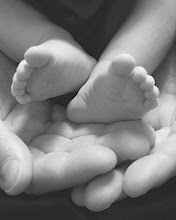On the other hand, the physical preparation is very important.Conception occurs about two weeks before your period is due. That means you may not even know you're pregnant until you're more than three weeks along. your baby is most sensitive to harm two to eight weeks after conception. This is when your baby's facial features and organs, such as the heart and kidneys, begin to form. Anything mother eat, drink, smoke or are exposed to can affect your baby. That's why it's best to start acting as if you're pregnant before you are.
Go to the doctor.

Both of you should visit your Doctor or Midwife.This is an area that you should already know what you are going to do. You can discuss about your plan to getting pregnant,and any questions if you have.Then you will probably be asked about your medical history and
body check-up,review any medications you are taking and make sure you are up to date on immunizations.Then he or she will advise what you have to do during pre-pregnacy period.
Medical tests

There are some tests to find out whether you have any health problem that harm future
baby or mother.HIV and other sexually transmitted infections (STIs), as well as immunity to
certain childhood diseases, like chickenpox and rubella. Its better to have these tests
done before pregnancy.
Sexually transmitted diseases (STDs). STDs such as gonorrhea, syphilis, chlamydia and
AIDS can make it hard for you to get pregnant and can also harm you or your baby. It is
best if these diseases are diagnosed and treated before pregnancy.
Rubella. If you don't know whether you've ever had rubella (also called the German
measles) or been vaccinated against it, a blood test can give the answer. Catching rubella
while you're pregnant can be very harmful for your baby. You can be vaccinated against
rubella before you get pregnant.
Other problems. Your doctor may also want to perform some other tests depending on your risk for other problems (such as anemia or hepatitis).
Also if mother-to be have diabetes, high blood pressure or problems with her circulation,she has to control it before getting pregnant
Folic Acid is very important.....
Have multi vitamin with folic acid is important, before becoming pregnant because folic
acid essential to develop baby�s brain and spinal cord during early pregnancy its developing. Women need about 0.4 mg of folic acid a day. You can take a multivitamin or
eat plenty of green, leafy vegetables, fruits like oranges, cantaloupe and bananas, milk,
grains and organ meats (such as chicken livers)..
Keep right weight.
Weight and Exercise. It is important to be in top physical shaped before conceiving your
baby. Remember not to start an exercise regimen after you have conceived – the best time
to start exercising is before.
If you're overweight, your risk during pregnancy is higher for things such as high blood
pressure and diabetes. You can use the time before getting pregnant to lose weight if you
need to.
Avoid harmful things.....
Try to avoid If anything could harm your baby at work or home.such as Some dangers
include radiation, heavy metals like lead, copper and mercury, carbon disulfide, acids and
anesthetic gases.
Avoid stress
.

Stress isn't good for you or your baby�before, during, or after pregnancy. Too much stress
may increase the risk of labor, low birth weight and possibly miscarriage.
Careful what you eat.

What you eat will also feed your baby. Junk food like potato chips, soda and cookies won't
have the right nutrients for your baby. You might also need to make some changes if you
follow a vegetarian or weight-loss diet. Talk to your doctor before taking extra vitamins and
minerals. Some of them may be harmful, like high doses of vitamin A and D. Limit your daily
Vitamin A intake to 3000 IU and Vitamin D to 400 IU or less. A daily prenatal vitamin
containing 30 mg of elemental iron is sufficient when combined with a diet that includes
meats and other foods high in iron. Before conception, women need 1,200 mg of calcium
per day, or the equivalent of a quart of milk or fortified orange juice. Alternatively, this can
be obtained from six servings of fortified bread or cereals. Limit your daily caffeine intake to
2 cups of coffee or 6 glasses of soda.
Change your habits.......
Using tobacco, alcohol or drugs can cause serious harm to your baby and sometimes even cause miscarriage. If you use tobacco, alcohol or drugs, get help from your doctor to quit.Try not to be embarrassed or scared to talk to your doctor. He or she will want to help you find a way to stop.
Smoking. Smoking can cause miscarriage, bleeding, premature birth and low birth weight.
It's also linked to sudden infant death syndrome (SIDS), in which infants suddenly die of no obvious cause.
Alcohol. Drinking by a pregnant woman can cause fetal alcohol syndrome (FAS). FAS can
lead to many problems, including mental slowness, poor growth, defects of the face and a
head that is too small. Drink no alcohol or as little as possible before and during pregnancy.
Illegal drugs. Using marijuana, cocaine and other illegal drugs raises the chances of
miscarriage, premature birth and birth defects. With some drugs, the child will be born
addicted to the drug that the mother used and will go through withdrawal.



No comments:
Post a Comment